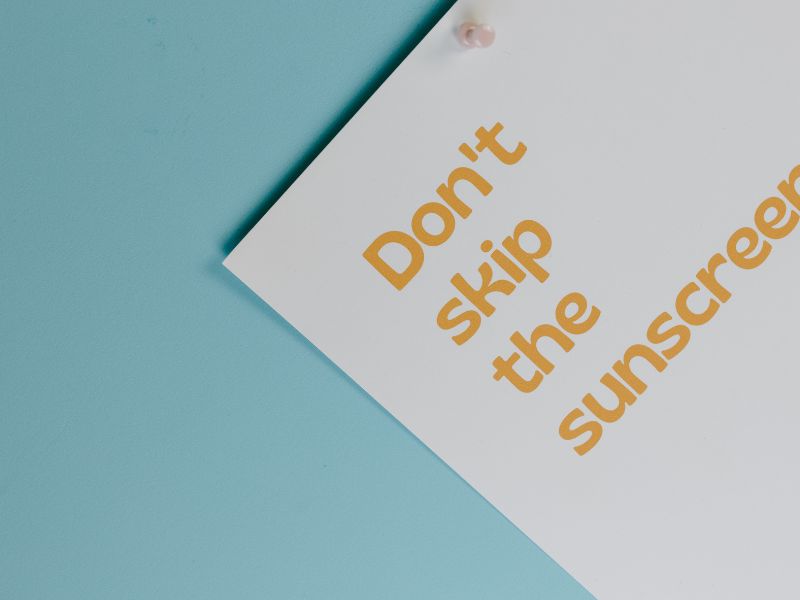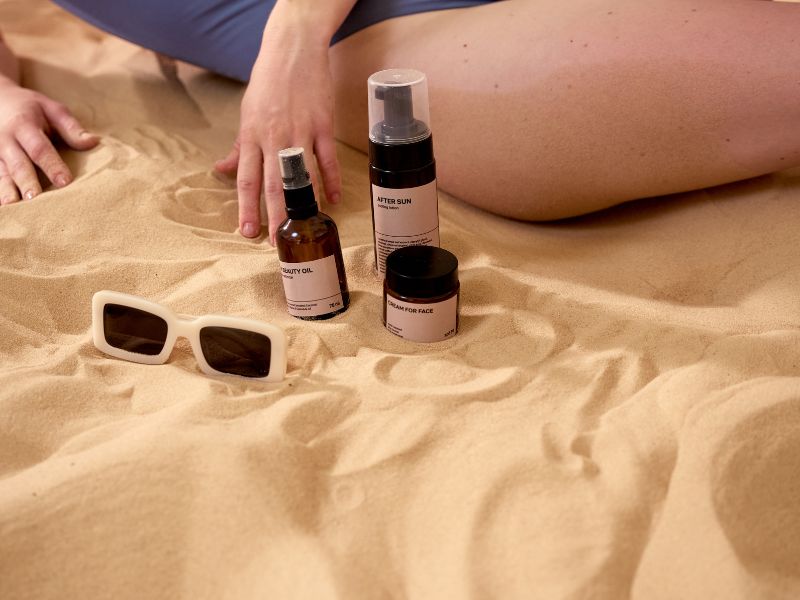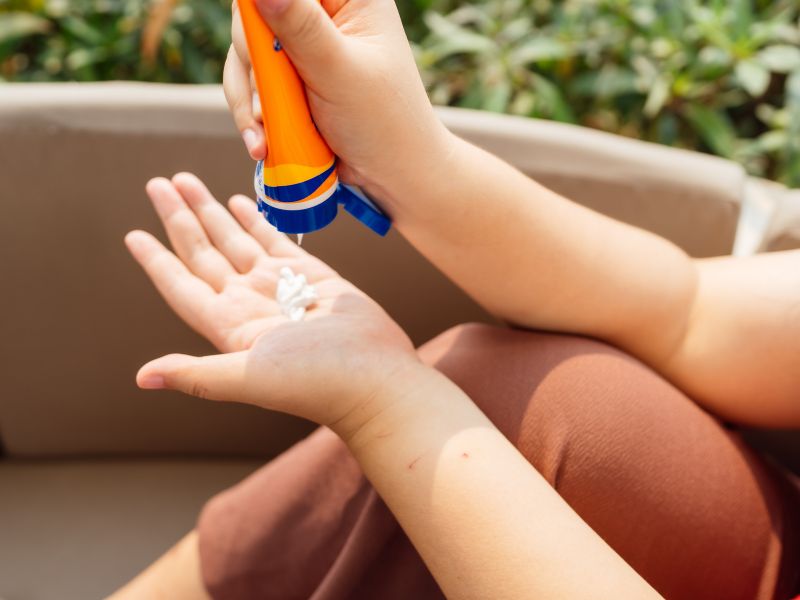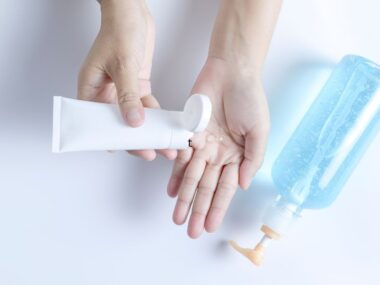“Do I need sunscreen today?” is still one of the most commonly asked concerns in our pursuit of healthy, radiant skin. Though a lot of subtlety is involved, the answer could be simpler than you might imagine. Sunscreen has many purposes other than just shielding our skin on bright beach days. Understanding how the sun affects our skin and why wearing sunscreen daily may be the best-kept beauty secret out there is essential to maintaining optimal skin health.
This article will explain why sunscreen is essential all year round, how various climates and conditions affect your nits needs fundamentals of UV radiation and SPF, and how to pick the best sunscreen for your needs.
Why Sunscreen is Essential Every Day
Sunscreen is frequently linked to sunny days or particular outdoor pursuits. Regardless of the weather or season, physicians and skin care specialists concur that sunscreen should be used every day. This is the reason:
- UV Rays Are Present Every Day, Everywhere: The sun emits ultraviolet (UV) rays year-round, even when it’s cloudy or raining. These rays can penetrate clouds and are strong enough to damage skin over time. So, while you may not feel the heat of the sun, your skin is still exposed to harmful UV rays.
- Cumulative Sun Exposure Leads to Skin Damage: Studies show that around 80-90% of visible skin ageing, including wrinkles, fine lines, and hyperpigmentation, is attributed to sun exposure. Even brief, daily exposure to UV rays adds up over the years, accelerating skin ageing and putting you at higher risk for skin cancer.
- UV Rays Cause Skin Cancer: Skin cancer is the most common form of cancer in many countries, and daily UV exposure can increase your risk. Both UVA and UVB rays play a role in skin damage and can lead to mutations in skin cells, which can then turn cancerous.
Understanding UV Rays and SPF Levels
To make an informed decision about using sunscreen, it’s essential to understand what you’re protecting your skin against.
UVA and UVB Rays: What’s the Difference?
- UVA Rays: These penetrate the skin more deeply than UVB rays and are primarily responsible for premature skin ageing. UVA rays can pass through glass, meaning that even if you’re inside near a window, you could still be exposed.
- UVB Rays: These affect the outer layer of your skin and are the primary cause of sunburn. UVB rays are also responsible for direct DNA damage, which can lead to skin cancer.
What is SPF?
SPF, or Sun Protection Factor, measures the level of protection a sunscreen provides against UVB rays. Here’s a quick guide to SPF levels:
- SPF 15: Blocks about 93% of UVB rays. This level is adequate for low sun exposure or brief times outdoors.
- SPF 30: Blocks around 97% of UVB rays. This is a popular choice for daily use.
- SPF 50: Blocks up to 98% of UVB rays and is recommended for extended outdoor activities or people with fair skin.
It’s also crucial to choose a broad-spectrum sunscreen, as this type of sunscreen will protect against both UVA and UVB rays.
Do I Need Sunscreen Today? Myths About Daily Sunscreen Use.
Here are a few common misconceptions about sunscreen usage:
- “I only need sunscreen on sunny days.” Even on cloudy or rainy days, up to 80% of UV rays can reach your skin. This means sunscreen is still necessary to protect your skin from UV damage.
- “I’m indoors, so I don’t need sunscreen.” UVA rays can penetrate through windows, which means your skin can be exposed even if you’re indoors. If you spend a lot of time near windows, it’s a good idea to apply sunscreen.
- “My makeup has SPF, so I’m covered.” While some makeup products contain SPF, they often don’t provide enough protection on their own. Sunscreen should be applied as a base layer under your makeup to ensure you have adequate coverage.
- “Sunscreen is only necessary in the summer.” UV rays are present throughout the year, including winter. Snow, for example, can reflect up to 80% of UV rays, increasing your risk of exposure in colder months.
When Should You Apply Sunscreen?
In general, sunscreen should be applied every day, even if you’re not planning to go outdoors for long. Here’s a breakdown of specific scenarios to consider:
- Daily Routine: Even if you’re spending most of your day indoors, it’s recommended to apply sunscreen in the morning.
- Extended Outdoor Activity: If you’re planning to be outside for more than 15-20 minutes, make sure to apply a broad-spectrum sunscreen with at least SPF 30.
- Near Water, Snow, or Sand: These surfaces reflect UV rays, increasing your exposure. In such cases, go for SPF 50 or higher and consider reapplying every two hours. Choosing the Right Sunscreen
Selecting the right sunscreen is essential to ensure you’re both comfortable and protected. Here are some factors to consider:
Types of Sunscreen
- Chemical Sunscreens: These contain ingredients that absorb UV rays and convert them to heat, which is then released from the skin. Chemical sunscreens are often more lightweight and less visible on the skin, making them ideal for daily wear.
- Physical (Mineral) Sunscreens: Made with minerals like zinc oxide and titanium dioxide, these sunscreens act as a physical barrier that reflects UV rays away from the skin. Physical sunscreens are generally a good choice for sensitive skin and are less likely to irritate.
Skin Type
- Oily Skin: Look for non-comedogenic sunscreens with a matte finish to avoid clogging pores.
- Dry Skin: Choose sunscreens with hydrating ingredients like hyaluronic acid or glycerin.
- Sensitive Skin: Opt for mineral sunscreens, which are less likely to irritate.
Lifestyle
Consider how much time you spend outdoors if you’ll be swimming or sweating, and how frequently you’re able to reapply. A water-resistant sunscreen is ideal for active days, while a lighter, non-greasy formula might work better for everyday use.
How to Properly Apply Sunscreen
Applying sunscreen effectively is as important as using it at all. Here are some best practices:
- Apply Generously: The rule of thumb is to use about a nickel-sized amount for the face and a shot glass full for the body.
- Don’t Forget the Often-Missed Areas: The ears, neck, hands, and even your scalp are frequently overlooked but are just as susceptible to UV damage.
- Wait Before Heading Out: Give chemical sunscreens around 15-20 minutes to absorb before heading outside.
- Reapply Every Two Hours: Especially if you’re swimming or sweating, it’s vital to reapply every two hours for maximum protection.
Sunscreen and Anti-Aging Benefits
In addition to protecting against skin cancer, one of the most appealing benefits of daily sunscreen use is its role in anti-ageing. Here’s how it helps:
- Prevents Fine Lines and Wrinkles: Sun exposure breaks down collagen and elastin, which can lead to premature wrinkles and sagging skin. Daily sunscreen use helps slow this process.
- Reduces Hyperpigmentation: Sunscreen helps prevent the development of dark spots and uneven skin tone caused by sun exposure.
- Maintains Skin Elasticity: By reducing the breakdown of collagen, sunscreen helps preserve the skin’s firmness and youthful texture.
- Protects Against Sunburn: Repeated sunburns damage the skin’s natural barrier, which can make it more susceptible to environmental pollutants and lead to premature ageing.
Conclusion
In conclusion, the majority of the time, the answer to the question, “Do I need sunscreen today?” is “Yes.” Our skin is constantly exposed to UV radiation, which can cause both short-term and long-term harm, regardless of the season or weather. You can maintain the health, youth, and protection of your skin by using the proper sunscreen and applying it often.
Keep in mind that using sunscreen every day is an easy action that has big advantages. It’s among the best methods for preventing skin cancer, keeping skin tone consistent, and fending off early ageing stages. So grab that bottle of sunscreen as part of your morning ritual. Today and for many years to come, your skin will appreciate it.






